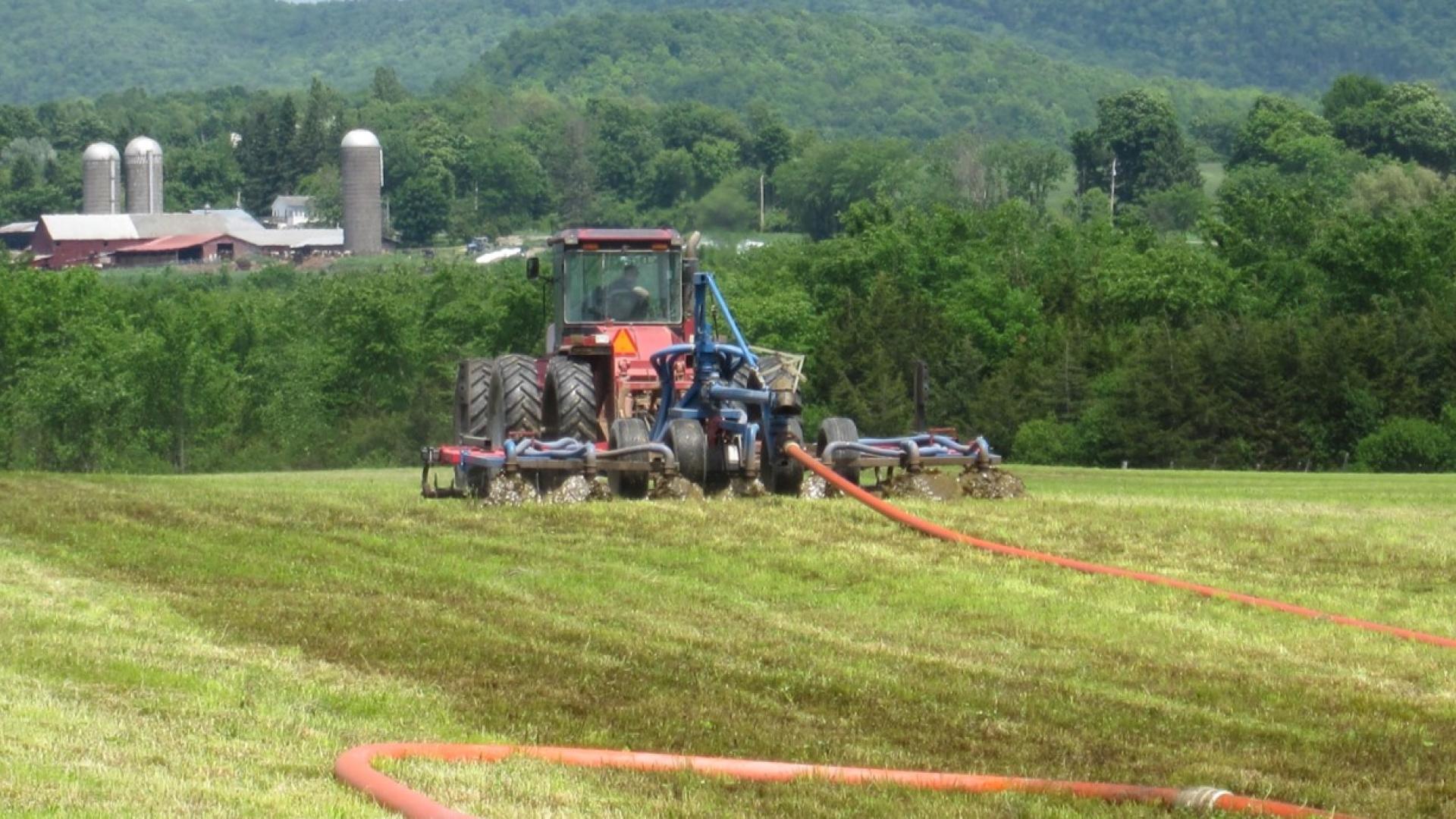A new laboratory study discovered that mixing acid whey with manure can decrease ammonia loss, increasing the amount of nitrogen available to plants from manure while reducing odor.
Manure naturally loses ammonia through a reaction called volatilization that accelerates under high temperatures and high pH. Ammonia is the primary culprit for manure’s signature smell. But farmers’ main incentive for keeping ammonia out of our noses is the importance of nitrogen as a nutrient source for plants.
Acid whey is an acidic byproduct of Greek yogurt and cottage cheese production. It can be applied to soil as a source of nutrients and organic matter. Researchers wanted to know how whey-manure mixtures affect soil acidity and ammonia loss from manure.
The findings
Applying manure-whey mixtures to soil did not cause sustained soil acidification, meaning whey can be safely added to fields with manure as a source of organic matter and nutrients. There was a pH swing right after manure application but this only lasted a short time.
Mixing whey with manure also cut ammonia losses by 44-67%, but the effect was temporary. This suggests that acid whey could be added to manure at key points when ammonia losses are likely to be the greatest.
Why it matters
Manure is an excellent source of nitrogen, which is critical for crop production. But, when not captured, significant amounts of nitrogen can be lost as ammonia during manure handling and land application. Adding whey to manure cuts these ammonia losses, increasing nitrogen availability for crops while reducing odor and nitrogen loss to the air. Acid whey is also a source of organic matter and nutrients, which can improve soil structure and biological activity.
What the experts say
“In the past there was concern that whey-manure mixtures may acidify soil. This study alleviates those concerns and demonstrates additional crop nutrition and climate benefits from adding whey to manure,” said Quirine Ketterings, professor of nutrient management and director of the Nutrient Management Spear Program in the department of Animal Science.
“Incorporating food byproducts into our agricultural systems can reduce waste and improve the sustainability of our food systems. In the case of acid whey, it also has the benefits of reducing ammonia emissions from manure and improving manure’s fertilizer value,” said Bhupinder Jatana, former postdoctoral associate with the Nutrient Management Spear Program.
Study Authors
Bhupinder Jatana, Sanjay Gami, Quirine Ketterings
Affiliation
Department of Animal Science, Cornell University
Read the full study
Megan Wittmeyer is a writer with the Cornell Nutrient Management Spear Program.





